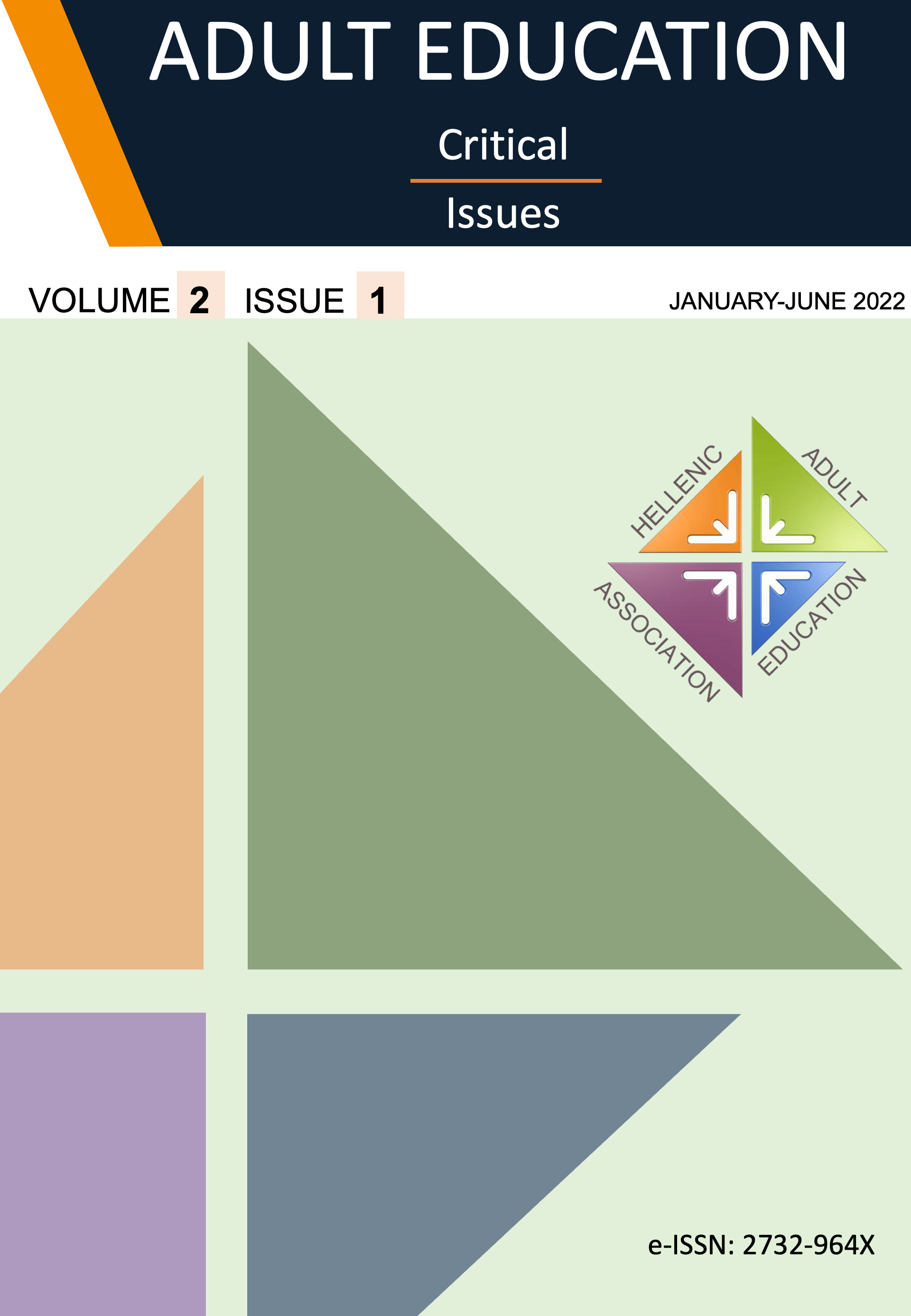Learning Between Two Worlds: The known and the not-foreknow
Περίληψη
There is a fundamental assumption that I have held about the role adult learning plays in society. That the sinuous stuff between personal and societal transformation is made up of the connections that learning makes. This assumption has been shaken over the as the past two years, as ruptures of civil unrest and the cloud of the global Pandemic have revealed weaknesses in the power of learning that makes the vital connection between the personal and societal, transformative. I wonder more than ever how to reveal and make real the learning that connects the two worlds I feel we live in. The world that is known and that continues to be reproduced with all of its inequities and exclusions and the world not- foreknown that wants to be different, liberating the creative potential that learning unfolds.
In this writing I offer a personal experience of penetrating the underlying assumptions I have about learning in between two worlds. I practice a method that I have created, in-scending, a practice of staying close to undergoing experience (Nicolaides, Forthcoming; Yorks & Nicolaides, 2013), experiencing experience while experiencing experience would be another way to describe what Dewey (1934) meant. In-scend(ing) is a word of my own making. It is the felt sense of moving beneath experience to undergo it. A tool of generative knowing (Nicolaides, Forthcoming; Nicolaides, 2015).
I explore the arising of awareness that emerged through the practice of in-scending, beneath an inquiry about my relationship to being secure in these times of insecurity. Undergoing is a less known aspect of reflection from Dewey’s pragmatist philosophy of learning through experience. Dewey discusses a necessary aspect of learning from experience in terms of undergoing an experience (Nicolaides, & Lim, 2020). Undergoing describes the felt sense of experiencing an experience. Having an experience is necessary for learning, and most assuredly for transformative learning to take shape though the meaning-making process that includes reflection on experience, and going beneath the experience with head, heart, and body. In this short offering I reveal what I learn by inquiring beneath what it means for me to be secure in times of insecurity. I do so by reviving Dewey’s (1934) concept of undergoing experience while also risking the conventional epistemologies that undergird transformative learning to consider a way of knowing that begin beneath experience (Nicolaides, 2015).
Λεπτομέρειες άρθρου
- Πώς να δημιουργήσετε Αναφορές
-
Nikolaides, A. (2022). Learning Between Two Worlds: The known and the not-foreknow. ADULT EDUCATION Critical Issues, 2(1), 112–117. https://doi.org/10.12681/aeci.30862
- Ενότητα
- Forum

Αυτή η εργασία είναι αδειοδοτημένη υπό το CC Αναφορά Δημιουργού 4.0.
Οι Συγγραφείς που δημοσιεύουν εργασίες τους σε αυτό το περιοδικό συμφωνούν στους παρακάτω όρους:
- Οι Συγγραφείς διατηρούν τα Πνευματικά Δικαιώματα και χορηγούν στο περιοδικό το δικαίωμα της πρώτης δημοσίευσης ενώ ταυτόχρονα τα πνευματικά δικαιώματα της εργασίας προστατεύονται σύμφωνα με την Creative Commons Attribution License που επιτρέπει σε τρίτους - αποδέκτες της άδειας να χρησιμοποιούν την εργασία όπως θέλουν με την προϋπόθεση της διατήρησης των διατυπώσεων που προβλέπονται στην άδεια σχετικά με την αναφορά στον αρχικό δημιουργό και την αρχική δημοσίευση σε αυτό το περιοδικό.
- Οι Συγγραφείς μπορούν να συνάπτουν ξεχωριστές, και πρόσθετες συμβάσεις και συμφωνίες για τη μη αποκλειστική διανομή της εργασίας όπως δημοσιεύτηκε στο περιοδικό αυτό (π.χ. κατάθεση σε ένα ακαδημαϊκό καταθετήριο ή δημοσίευση σε ένα βιβλίο), με την προϋπόθεση της αναγνώρισης και την αναφοράς της πρώτης δημοσίευσης σε αυτό το περιοδικό.
- Το περιοδικό επιτρέπει και ενθαρρύνει τους Συγγραφείς να καταθέτουν τις εργασίες τους μέσω διαδικτύου (π.χ. σε ένα ακαδημαϊκό καταθετήριο ή στις προσωπικές τους ιστοσελίδες) πριν και μετά από τις διαδικασίες της δημοσίευσης, καθώς αυτό μπορεί να οδηγήσει σε παραγωγική ανταλλαγή ιδεών και σκέψεων καθώς επίσης και σε γρηγορότερη και μεγαλύτερη χρήση και ευρετηρίαση της δημοσιευμένης εργασίας (See The Effect of Open Access).



